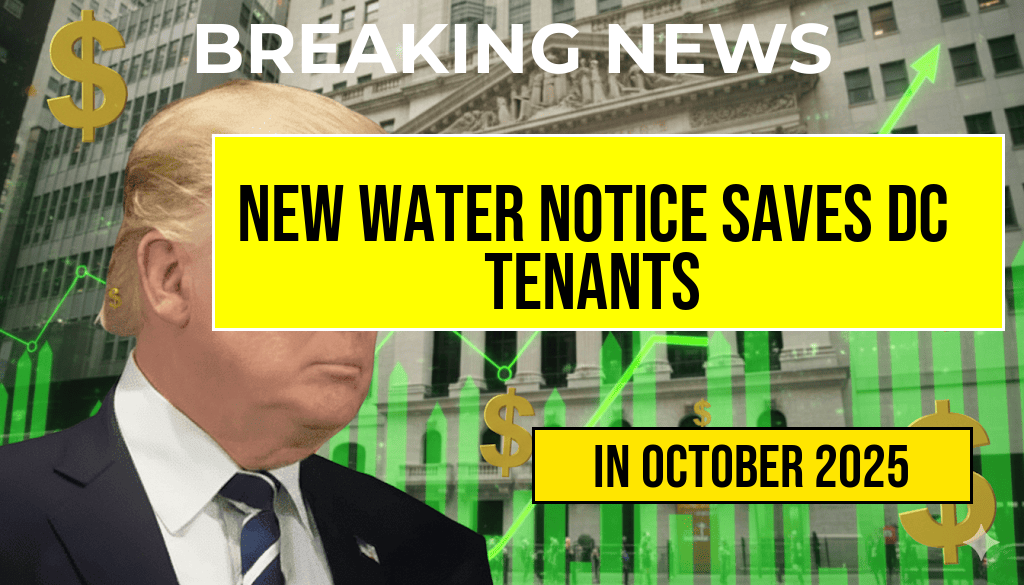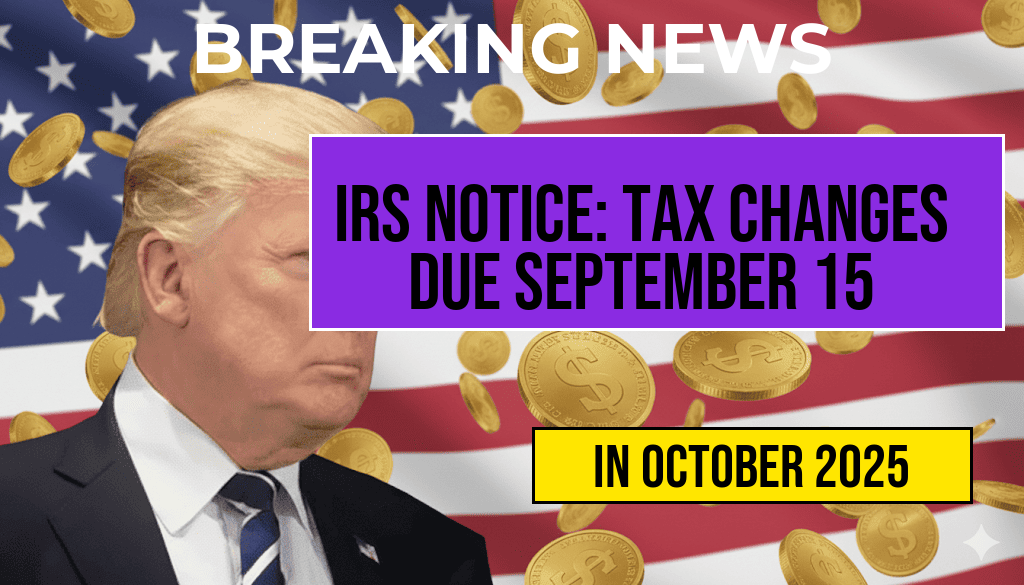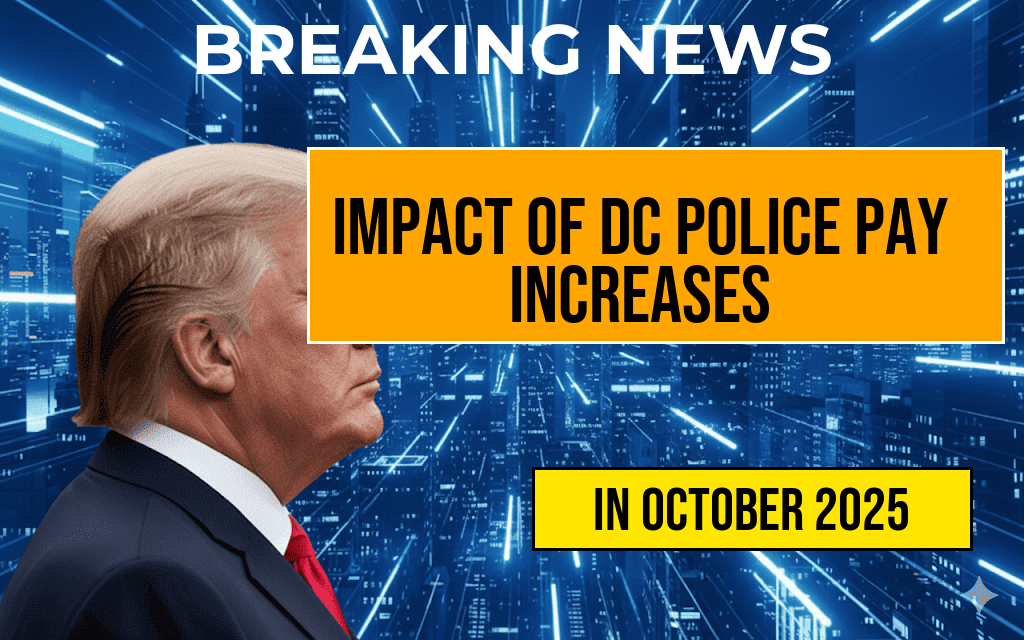Washington, D.C. tenants are poised to benefit from a new regulation aimed at preventing unexpected charges associated with water service interruptions. Beginning in 2024, landlords will be required to provide tenants with a 30-day notice before any scheduled water shutoff for non-payment. This initiative, passed by the D.C. Council, is designed to help renters avoid surprise fees that can accumulate rapidly when water services are disrupted. The legislation, which aligns with broader efforts to enhance tenant protections in the city, is expected to save residents hundreds of dollars in potential costs related to late payments or service reconnections. Advocates for tenants’ rights view this measure as a significant step in promoting transparency and accountability in rental agreements.
Understanding the New Water Shutoff Notice Requirement
The newly enacted law mandates that landlords must give tenants a written notice at least 30 days prior to any planned water shutoff due to non-payment. This requirement is particularly crucial as many tenants may struggle to keep up with their bills, especially in the current economic climate. The notice must include detailed information regarding the amount owed and the potential consequences of failing to pay.
Key Features of the Legislation
- 30-Day Notice Period: Landlords are now obligated to inform tenants at least 30 days in advance before shutting off water services.
- Details on Charges: Notices must clearly state the amount due and any associated fees that may accrue if payment is not received.
- Tenant Protections: The law aims to reduce the financial burden on renters by allowing them time to address overdue payments before services are cut.
Impact on Tenants and Landlords
This new requirement is anticipated to have a significant impact on both tenants and landlords in Washington, D.C. For tenants, the advance notice means they will have more time to manage their finances and avoid accumulating late fees. The legislation is expected to empower renters by providing them with more control over their situations, potentially reducing the number of water shutoffs experienced in the city.
Landlords, on the other hand, will need to adapt to this new regulation. They will be required to maintain accurate records of tenant payments and ensure timely communication regarding any financial issues. Failure to comply with the notice requirement could result in penalties, which may incentivize landlords to work more collaboratively with tenants to resolve payment issues before resorting to shutoffs.
Financial Implications for Tenants
Unexpected water shutoff fees can quickly add up, leading to financial strain for many renters. According to a report from the Forbes, these fees can range from reconnection charges to additional administrative costs imposed by landlords. With the new regulation in place, tenants can potentially save hundreds of dollars by addressing overdue payments proactively rather than facing sudden service interruptions.
Tenant Advocacy and Support
Tenant advocacy groups in D.C. have praised the new legislation as a victory for renters’ rights. Organizations such as the D.C. Tenants’ Union have worked diligently to promote policies that protect renters from exploitative practices. They argue that transparent communication between landlords and tenants is essential in fostering a healthier rental market.
Additionally, these groups encourage tenants to be proactive in understanding their rights and responsibilities under the new law. Educational programs and resources are being developed to help renters navigate the complexities of rental agreements and financial obligations.
Looking Ahead: Future Tenant Protections
The water shutoff notice requirement is part of a broader trend in D.C. aimed at enhancing protections for tenants. As housing costs continue to rise, lawmakers are exploring further measures to ensure that renters are not burdened by surprise fees and can secure stable living conditions. Future initiatives may include additional regulations on late fees or enhanced support for tenants facing financial hardship.
Conclusion
The introduction of the 30-day water shutoff notice requirement marks a significant advancement in tenant rights in Washington, D.C. By ensuring that renters are given adequate notice and clear information about their financial responsibilities, the city is taking important steps toward fostering a more equitable housing environment. As these changes take effect, both tenants and landlords will need to adapt to the new landscape, prioritizing communication and cooperation.
Frequently Asked Questions
What is the new water shutoff notice requirement for DC tenants?
The new requirement mandates that landlords must provide tenants with a written notice at least 30 days prior to any planned water shutoff. This aims to help tenants avoid unexpected fees and disruptions in service.
How can tenants benefit from the water shutoff notice requirement?
By receiving advance notice, tenants can better prepare for potential water shutoffs, allowing them to avoid surprise fees and manage their household needs effectively.
What should tenants do if they do not receive a notice?
If tenants do not receive the required notice within the specified time frame, they should contact their landlord to inquire about the situation. They may also report the issue to local housing authorities.
Are there any penalties for landlords who fail to comply with the notice requirement?
Yes, landlords who do not comply with the notice requirement may face penalties, including fines and potential legal action from tenants seeking to enforce their rights under the new law.
How can tenants ensure they stay informed about water shutoff notices?
Tenants should maintain open communication with their landlords and may also request to receive the water shutoff notice via email or other preferred communication methods to ensure they are adequately informed.








